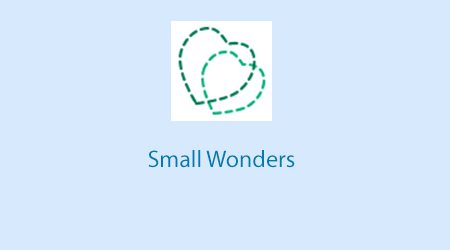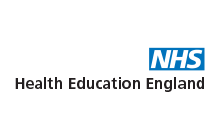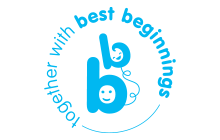About the Small-Wonders elearning programme
Small Wonders elearning programme comprises seven succinct sessions developed for neonatal health care professionals and anyone coming into contact with neonates and their families. The programme is designed to optimise professional competencies by enhancing your understanding of the neonatal journey from a parent’s perspective. This includes: a review of the role of lactation physiology in expressing and getting to volume in neonatal care; how to involve parents as partners in care in the neonatal journey; how to support the transition to babies’ feeding independently; how to support parents as they transition to a new unit or home; and how to support neonatal baby loss with its unique challenges in bereavement. This learning reflects best practice and is consistent with an increased awareness of the positive impact that good family-centred neonatal care can have on the mental health and wellbeing of entire families, not solely the physical wellbeing of the baby.
More information
Neonatal care has advanced and improved the outcomes for babies in its care. However, the focus has been predominately on reducing mortality and morbidities for babies during their neonatal stay and their physical health outcomes post discharge. Less focus is concentrated on the outcomes for parents and the early relationships built with their baby.
Recent research and interventions have focused on the importance of developing a close and loving relationship by involving parents in their babies care right from the beginning. Evidence suggests that what happens in the first hours and days of a family’s experience of neonatal care can have a significant impact on outcomes.
This resource encourages empathy and communication, with up to date information and advice to help get the neonatal journey off to a good start and to empower families to continue this positive process at home.
Each session explores a particular theme within the neonatal journey and all sessions are integrated to provide a strong foundation to equip learners to empower parents to take an active role in their neonatal care journey.
Meet the team

Annie Aloysius
Author
Alison Baum OBE
CEO Best Beginnings
Stephanie Kronson
Director of Communications, Content and Digital, Best Beginnings
Laura Price
Freelance medical author and editor
Nilu Perera
Evaluation Lead, Best Beginnings
Moz Cammack
Project Manager, HEE elearning for healthcare
Victoria Ward
Learning Designer, HEE elearning for healthcare
Acknowledgements
- Thanks to SANDS (Stillbirth and Neonatal Death charity) for allowing us to embed the National Care Bereavement Pathway alongside session 6 which focuses on bereavement in the neonatal setting.
Thanks to the Small Wonders Advisory Group:
- Anne Strong – Professional Officer, breastfeeding support
- Dr. Celia Harding – FRCSLT, Honorary Professor, Division of Language and Communication Science
- Maggie Fisher – Independent Health Visitor
- Jane Denton CBE FRCN – Director of The Multiple Births Foundation/Co-lead Elizabeth Bryan Multiple Births Centre
- Kim Redfern –Clinical Advisor, Child Health
- Dee Yissau – Network Educator, London Neonatal Operational Delivery Network, Guy’s and St Thomas’ NHS Foundation Trust
- Jenni Jadodzinski – Lead Nurse, Quality Improvement, London Neonatal Operational Delivery Network, Guy’s and St Thomas’ NHS Foundation Trust
- Prof. Elaine Boyle, Elaine – Professor of Neonatal Medicine, Department of Health Sciences, College of Life Sciences
- Erica Everett – Network Lead Nurse Neonatal Neuroprotection and Practice Development, Cambridge University Hospitals NHS Foundation Trust
- Gail Johnson – Professional Advisor for Education, Royal College Midwives
- Clea Harmer – SANDS charity
- Claire O’Mara Lead Nurse/Innovation Lead East of England Neonatal OD
- Chair of the Neonatal Nurses Association (NNA)
- Michele Upton – Head of Maternity and Neonatal Transformation Programmes, NHS Improvement
- Professor Soo Downe – Professor in midwifery studies, The University of Central Lancashire
How to access
In order to access the Small Wonders programme, you will need an elfh account. If you do not have one, then you can register by selecting the Register button below.
To view the Small Wonders programme, select the View button below. If you already have an account with elfh, you will also be able to login and enrol on the programme from the View button.
Not an NHS organisation?
If you are not an NHS health or care organisation and therefore do not qualify for free access elfh Hub, you may be able to access the service by creating an OpenAthens account.
To check whether or not you qualify for free access via OpenAthens, you can view the eligibility criteria and register on the ‘OpenAthens’ portal.
Registering large numbers of users
If you are a HR, IT or Practice Manager and would like to register and enrol large numbers of staff within your organisation for access onto the Small Wonders programme, please contact elfh directly.
Organisations wishing to use their own LMS
For HR departments wanting to know more about gaining access to courses using an existing Learning Management System please contact elfh directly to express interest.
More information
Please select the following link for more information on how to use the elfh Hub.
References
Unicef UK Baby Friendly Initiative – neonatal leaflet: You and your baby – Supporting love and nurture on the neonatal unit https://www.unicef.org.uk/babyfriendly/wp-content/uploads/sites/2/2015/08/neonatal_leaflet_online.pdf
- Cherry, R. Blucker, T. Thornberry et al (2016) Postpartum depression screening in the neonatal intensive care unit: program development, implementation, and lessons learned. J Multidisciplinary Healthcare 9; 59-67
- Aloysius, K. Platonos, A, Deierl, J. Banerjee (2018). The neonatal parent experience: How Integrated Family Delivered Care can help. Journal of Neonatal Nursing 24; 66-73
- imperial-familyintegratedcare.com IFDC Care Bundle – App/Parent Education Chapter 13 Coping in the NICU
1 Daga SR, Shinde SB. Mothers’ participation in neonatal intensive care and its impact. J Trop Pediatr. 1987;33(5):274-7.
2 Karan S, Rao SS. Benefits of early maternal participation in care of low birth weight infants leading to early discharge. J Trop Pediatr. 1983;29(2):115-8.
3 Mohan VM, Karan S. Maternal involvement in the care of high risk infants in a sick newborn nursery–a prospective study. Indian Pediatr. 1986;23(2):121-5.
4 Bhutta ZA, Khan I, Salat S, Raza F, Ara H. Reducing length of stay in hospital for very low birthweight infants by involving mothers in a stepdown unit: an experience from Karachi (Pakistan). BMJ. 2004;329(7475):1151-5.
5 Bastani F, Abadi TA, Haghani H. Effect of Family-centered Care on Improving Parental Satisfaction and Reducing Readmission among Premature Infants: A Randomized Controlled Trial. J Clin Diagn Res. 2015;9(1):SC04-8.
6 Levin A. The Mother-Infant unit at Tallinn Children’s Hospital, Estonia: a truly baby-friendly unit. Birth. 1994;21(1):39-44, discussion 5-6.
7 Als H, Lawhon G, Brown E, Gibes R, Duffy FH, McAnulty G, et al. Individualized behavioral and environmental care for the very low birth weight preterm infant at high risk for bronchopulmonary dysplasia: neonatal intensive care unit and developmental outcome. Pediatrics. 1986;78(6):1123-32.
8 Rauh VA, Nurcombe B, Achenbach T, Howell C. The Mother-Infant Transaction Program. The content and implications of an intervention for the mothers of low-birthweight infants. Clin Perinatol. 1990;17(1):31-45.
9 Melnyk BM, Feinstein NF, Alpert-Gillis L, Fairbanks E, Crean HF, Sinkin RA, et al. Reducing premature infants’ length of stay and improving parents’ mental health outcomes with the Creating Opportunities for Parent Empowerment (COPE) neonatal intensive care unit program: a randomized, controlled trial. Pediatrics. 2006;118(5):e1414-27.
10 O’Brien K, Robson K, Bracht M, Cruz M, Lui K, Alvaro R, et al. Effectiveness of Family Integrated Care in neonatal intensive care units on infant and parent outcomes: a multicentre, multinational, cluster-randomised controlled trial. Lancet Child Adolesc Health. 2018 Apr;2(4):245-254.
11. Banerjee J, Aloysius A, Mitchell K, et al Improving infant outcomes through implementation of a family integrated care bundle including a parent supporting mobile application. Archives of Disease in Childhood – Fetal and Neonatal Edition Published Online First: 21 June 2019. doi: 10.1136/archdischild-2018-316435





